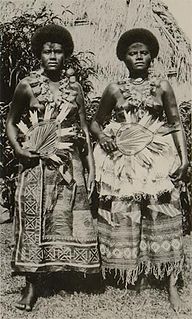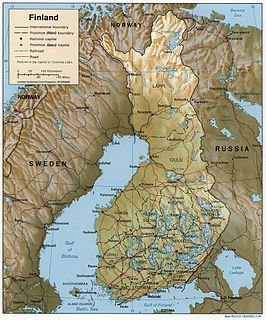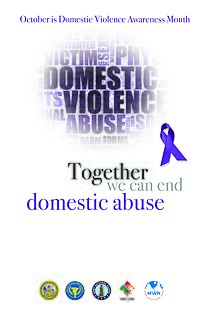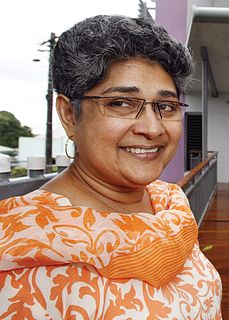
The Progressive Party is a centre-right, populist and agrarian political party in Iceland. For most of its history, the Progressive Party has governed with the Independence Party. Since 30 November 2017, the party has been a coalition partner in the Jakobsdóttir government.
A crisis pregnancy center (CPC), sometimes called a pregnancy resource center (PRC), is a type of nonprofit organization established to counsel pregnant women against having an abortion. CPCs generally provide peer counseling related to abortion, pregnancy, and childbirth, and may also offer additional non-medical services such as financial assistance, child-rearing resources, and adoption referrals. CPCs that qualify as medical clinics may also provide pregnancy testing, sonograms, and other services. However, CPCs have also frequently been found to disseminate false medical information, usually about the supposed physical and mental health risks of abortion, but sometimes also about the effectiveness of condoms and the prevention of sexually transmitted infections.

The European Union Agency for Fundamental Rights, usually known in English as the Fundamental Rights Agency (FRA), is a Vienna-based agency of the European Union inaugurated on 1 March 2007. It was established by Council Regulation (EC) No 168/2007 of 15 February 2007.
Rape crisis centers (RCCs) are community-based organizations affiliated with the anti-rape movement that work to help victims of rape, sexual abuse, and sexual violence. Central to a community’s rape response, RCCs provide a number of services, such as victim advocacy, crisis hotlines, community outreach, and education programs. As social movement organizations, they seek to change social beliefs and institutions, particularly in terms of how rape is understood by medical and legal entities and society at large. There is a great deal of diversity in terms of how RCCs are organized, which has implications for their ideological foundations, roles in their communities, and the services they offer.

Human rights in Austria are generally respected by the government; however, there were problems in some areas. There were some reports of police abuse and use of unjustified force against prisoners. Antisemitic incidents, including physical attacks, name-calling, property damage, and threatening letters, telephone calls, and Internet postings occurred during the year. There was some governmental and societal discrimination against fathers, Muslims and members of unrecognized religious groups, particularly those considered "sects". There were incidents of neo-Nazi activity, rightwing extremism, and xenophobia. Trafficking in women and children for prostitution and labor also remained a problem.
Violence against women in Peru is defined as harassment or violence propagated against those who are born women. Intimate partner violence (IPV) is the most common form of gender-based violence that occurs though it can occur concurrently with sexual and emotional violence.

As sexual violence affects all parts of society, the responses that arise to combat it are comprehensive, taking place on the individual, administrative, legal, and social levels. These responses can be categorized as:
Ushahidi, Inc. is a non-profit technology company with staff in nine countries whose mission is to help marginalized people raise their voice and those who serve them to listen and respond better. It has been instrumental in creating the Kenyan tech ecosystem, known as the Silicon Savannah, and its employees have gone on to found iHub, Akirachix, and BRCK.

The rate of sexual violence in South Africa is among the highest in the world. Sexual violence is the use of force or manipulation to get someone to engage in unwanted sexual activity without their consent. During 2015/16, there were 51,895 crimes of a sexual nature reported to the South African Police Service.
Iceland is generally considered to be one of the leading countries in the world in regard to the human rights enjoyed by its citizens. Human rights are guaranteed by Sections VI and VII of Iceland's Constitution. Since 1989, a post of Ombudsman exists. Elections are free and fair, security forces report to civilian authorities, there is no state violence, and human-rights groups are allowed to operate without restriction. Religious freedom is guaranteed, and discrimination based on race, gender, disability, language, or other factors is illegal.
The Association of Women for Action and Research (AWARE) is a not-for-profit organisation that advocates for gender equality and provides critical support services for women in Singapore. It is a registered charity with Institute of Public Character status.
Rape Crisis England and Wales is the national umbrella organisation for Rape Crisis Centres across England and Wales. As a registered charity, Rape Crisis also works to raise awareness of sexual violence and campaign for change.

Women in Brunei are women living in Brunei Darussalam. In Brunei, women are regarded as persons of "very high status". The U.S. Department of State has stated that discrimination against women is a problem in Brunei.

Women in Tuvalu continue to maintain a traditional Polynesian culture within a predominantly Christian society. Tuvaluan cultural identity is sustained through an individual’s connection to their home island. In the traditional community system in Tuvalu, each family has its own task, or salanga, to perform for the community. The skills of a family are passed on from parents to children. The women of Tuvalu participate in the traditional music of Tuvalu and in the creation of the art of Tuvalu including using cowrie and other shells in traditional handicrafts. There are opportunities of further education and paid employment with non-government organisations (NGOs) and government enterprises, education and health agencies being the primary opportunities for Tuvaluan women.

Women in Fiji live in or are from the Republic of Fiji. On March 8, 2007, The Fiji Times ONLINE described Fijian women as playing an important role in the fields of economic and social development in Fijian society. The women of the Republic of Fiji are the "driving force" in health service as nurses and medical doctors. They are also key players and managers in the tourism and entertainment industries, as well as teachers in the field of education.

The Nordic countries are often praised for their achievements on gender equality, yet Finland is European Union's second most violent country for women with 47 percent of Finnish women saying that they have experienced physical and/or sexual violence since the age of 15 in 2012. Sexual violence is defined as the use of force or manipulation to get someone to engage in unwanted sexual activity without his or her consent. Such violence takes place in both heterosexual and homosexual relationships, as well as outside intimate relationships. The victims of sexual violence are predominantly women, but 26 percent of Finnish men have experienced sexual harassment since their 15th birthday. All sexual offenses violate the basic right of sexual self-determination. In Finland, sexual violence and taking advantage of a person is always a crime, even if the assaulter was the victim's spouse, relative or their friend. Sexual offences include but are not limited to rape, forcing someone into a sexual act and taking sexual advantage of a person.
Violence against women in Fiji is recognised to be "pervasive, widespread and a serious national issue" in the Pacific Island region. Fiji's rates of violence against women are "among the very highest in the world". The Fiji Women's Crisis Centre reports that 64% of women who have been in intimate relationships have experienced physical or sexual violence from their partner, including 61% who were physically attacked and 34% who were sexually abused.
The Fiji Women's Rights Movement (FWRM) is a multi-ethnic and multi-cultural organisation based in Suva, Fiji, that works to remove discrimination against women through attitudinal changes and institutional reforms. FWRM believes in the practice and promotion of feminism, democracy, good governance and human rights. FWRM is known for its public opposition to military rule in Fiji since the first coup in 1987, and for its innovative approaches and core programmes related to intergenerational women's leadership in Fiji, particularly young, indigenous and locally-born women.
The Me Too movement, with a large variety of local and international related names, is a movement against sexual harassment and sexual assault. The movement began to spread virally in October 2017 as a hashtag on social media in an attempt to demonstrate the widespread prevalence of sexual assault and harassment, especially in the workplace. It followed sexual-abuse allegations against Harvey Weinstein. Suggested by a friend, the phrase was later popularized by American actress Alyssa Milano on Twitter in 2017. Milano encouraged victims of sexual harassment to tweet about it and "give people a sense of the magnitude of the problem". A number of high-profile posts and responses from American celebrities Gwyneth Paltrow, Ashley Judd, Jennifer Lawrence, and Uma Thurman, among others, soon followed.

Domestic violence in South Korea is the mental, physical, verbal or sexual abuses or crimes of violence committed towards a victim in a domestic setting of marital relations and cohabitation. Domestic violence describes violence towards a domestic partner, towards children and between siblings. According to the Domestic Violence Survey of South Korea in 2010, elder abuse was estimated to be 10%, physical abuse accounted for 2.2%, emotional abuse 9%, economic abuse 1.2%, and neglect 2.5%. Marital violence has been the most prevalent form of family violence in South Korea. One out of six couples in South Korea had more than one episode of physical violence from their spouse.















